The Western diet, characterized by low dietary fiber and high saturated fat content, is strongly correlated with incidence of CRC. This diet rapidly alters the composition and function of the gut microbiome, inducing microbial imbalance and inflammation, two major hallmarks of CRC. These changes are thought to be caused by diet-induced oxygenation of the gut environment. Most beneficial gut bacteria cannot survive this oxygenated environment, but harmful microbes can thrive in this setting and further exacerbate inflammatory responses. The response of bacteria to oxygen is varied and poorly understood. Dr. Reddy [Connie and Bob Lurie Fellow] aims to elucidate the mechanism underlying oxygen tolerance in bacteria and find interventions to restore normal oxygen levels. The findings from this project will delineate the contributions of exercise and diet to establishing the oxidative environment of the gut and illuminate the mechanism allowing certain microbes to withstand redox stress. Dr. Reddy received her PhD from Harvard University, Cambridge and her BS from University of Connecticut, Mansfield.
Colorectal and Gastric Cancers
Current Projects
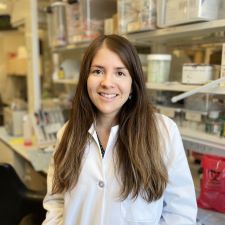
Endogenous retroviruses are viral elements of the human genome derived from retroviral infections of distant ancestors. Recent findings support the idea that these elements can cause immune system activation and inflammation. However, the crosstalk between endogenous retroviruses and the gut microbes that control immunity within the gut-and how abnormalities in this dialogue lead to inflammatory disorders-is not well understood. Further, although endogenous retroviruses have been proposed as potential targets for immunotherapy, we lack a mechanistic understanding of their interactions with the gut microbiota and how these interactions influence cancer development. Dr. Rivera Cifuentes [Lorraine W. Egan Fellow] aims to uncover how multi-kingdom interactions in the gut control intestinal health and colorectal cancer development. This work may have important clinical implications for the treatment of gut inflammatory disorders and gastrointestinal cancers. Dr. Rivera Cifuentes received her PhD from the University of Paris, Paris and her BSc from The Pontifical Catholic University of Chile, Santiago.

T lymphocytes, an important component of the immune system, recognize infected or cancerous cells with great specificity, ensuring targeted elimination. These potent cells are kept in check by regulatory T cells, the guardians of the immune system. While essential for curtailing excessive inflammation and preventing autoimmunity, their immunosuppressive properties can promote the development and progression of cancer. Regulatory T cells are distinguished by the presence of a protein called Foxp3, which plays a critical role in their differentiation, function and fitness. Foxp3 deficiency results in fatal autoimmune inflammatory disease, underscoring its importance for maintaining organismal health. Despite its significance, however, the reliance of regulatory T cells on Foxp3 in disease contexts like infection and cancer remains incompletely understood. Dr. Schiepers [HHMI Fellow] will study the fate and function of regulatory T cells in these settings using mouse genetics approaches and disease models of melanoma and colorectal cancer. Dr. Schiepers received his PhD from The Rockefeller University, New York and his MS and BS from Utrecht University, Utrecht.
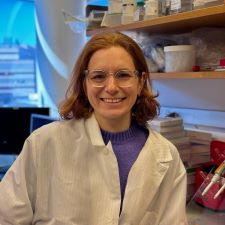
Normal tissues naturally weed out harmful cells to prevent cancer. But when cancer develops, this defense system breaks down, allowing the cancer to attack healthy cells for its own growth. The Shaffer lab is set to explore this process, called cell competition, in esophageal cancer. By employing precise tracking and advanced spatial analysis, Dr. Shaffer [Bakewell Foundation Innovator] aims to reveal how cell competition contributes to cancer development and how it might be harnessed to prevent it. The goal of her research is to pioneer early intervention therapies to halt cancer in its tracks.
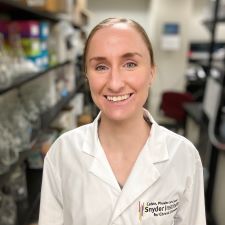
Neutrophils are important anti-microbial cells within the innate immune system. Recently, it has been shown that neutrophils can perform diverse functions, taking on both pro-inflammatory and pro-healing roles in response to tissue injury or insult. Dr. Siwicki's [Dale F. and Betty Ann Frey Fellow] goal is to understand how different neutrophil subtypes or states function to balance inflammatory versus regenerative processes, ultimately influencing tissue health and cancer. This work has the potential to uncover the basis of neutrophils' pro-tumor versus anti-tumor functions and could open the door to therapeutic targeting of specific neutrophil behaviors in order to improve clinical outcomes in cancer. Dr. Siwicki received her PhD from Harvard Medical School, Boston and ScB from Brown University, Providence.
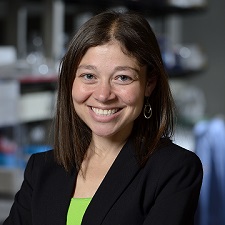
Groundbreaking advances in immunotherapy have revolutionized the treatment of cancer. In particular, new antibody drugs that block immunosuppressive pathways have achieved remarkable success in reawakening the immune system to clear tumor cells, leading to lasting cures in patients whose cancers do not respond to any other therapies. Unfortunately, the majority of patients (>70%) do not respond to immunotherapy treatment. It is difficult to predict which patients will benefit, creating an urgent demand for novel immunotherapy drugs that act through alternative mechanisms. Dr. Spangler is working to develop a class of antibody therapeutics that target cancer-promoting pathways in a different way than all current immunotherapies, with the goal of drastically expanding the percentage of cancer patients who benefit from them.
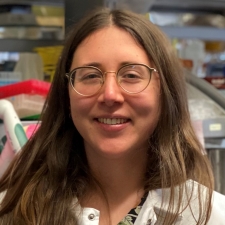
When an organism is developing, it must correct mistakes that might occur at the level of individual cells or tissues. Dr. Triandafillou [National Mah Jongg League Fellow] wants to better understand how error correction systems work, and why they might not work in cases like cancer. To explore these developmental questions, Dr. Triandafillou uses what are called gastruloids, 3D clusters of stem cells that can organize themselves and transform into the basic building blocks of an organism. She developed a method using microscopy to trace the history of these cells and measure how much their past state and history influence what they become. Dr. Triandafillou wants to see how differences in individual cells might impact what those cells eventually turn into, and how such differences affect the correction of mistakes like abnormal growth, bias in cell types, or missing cell types. She is also interested in how the cells around an error react to it. Dr. Triandafillou received her PhD from the University of Chicago and her BS from Temple University.
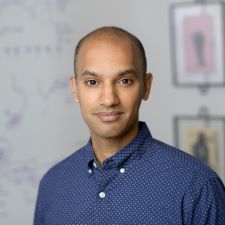
Dr. Vardhana [Gordon Family Clinical Investigator] is exploring the hypothesis that gastric cancers create an inhospitable environment for immune T-cells by limiting the availability of essential nutrients needed by T-cells to produce the cytotoxic proteins that, when released, kill cancer cells. There is evidence that T-cells lose the ability to produce cytotoxic proteins within gastric tumors, while gastric tumors take up and sequester amino acids—the building blocks of all proteins, including cytotoxic proteins—such that they cannot be accessed by T-cells within tumors. Understanding and reversing this metabolic sequestration within gastric tumors may be a novel strategy to enhance T-cell immunity within gastric tumors.
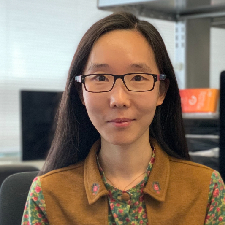
Extrachromosomal DNA (ecDNA), or DNA not attached to a chromosome, has been found in nearly half of human cancer types, especially in aggressive cancers such as glioblastoma, neuroblastoma, leukemia, lung, and ovarian cancer. Despite being a potent cancer driver, the mechanisms underlying ecDNA regulation remain largely unexplored. Combining both advanced imaging and cutting-edge sequencing technologies, Dr. Yan [Connie and Bob Lurie Fellow] is investigating how ecDNA is spatially organized in cells and genetically inherited over generations. She hopes to reveal new mechanisms of DNA regulation and inheritance other than the canonical chromosome and help develop new ways to treat patients with ecDNA-driven cancers. Dr. Yan received her PhD from the University of California, San Francisco, and her BS from Peking University.
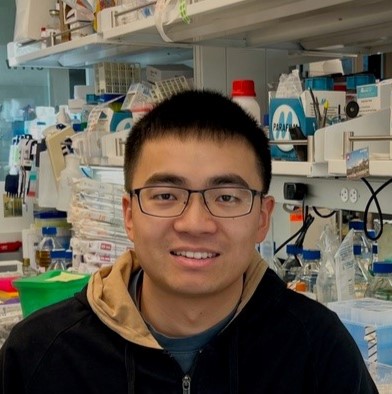
Emerging evidence underscores the profound impact of the gut microbiome, a collection of microorganisms within our digestive system, on cancer. These microorganisms collectively generate various metabolites that can significantly influence cancer progression and treatment outcomes. Dr. Zeng is employing synthetic communities and mouse cancer models to delve into the intricate connections between cancer and the microbiome. His synthetic communities, comprised of over 100 strains, allow for precise manipulation of the microbiome to elucidate the role of specific microbial metabolites in cancer. Additionally, Dr. Zeng is studying community-scale metabolism and using genetically edited strains to design synthetic communities with desired metabolic profiles. These approaches will gain valuable insights into microbiome-cancer interactions and establish a broadly applicable strategy to harness the therapeutic potential of gut microbiome. Dr. Zeng received his PhD from Princeton University, Princeton and his BS from Tsinghua University, Beijing.







